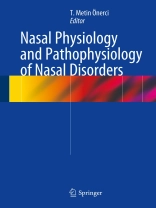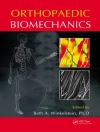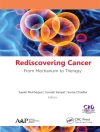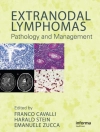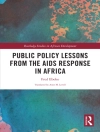Nasal physiology and pathophysiology is a relatively neglected area, yet without a deep knowledge of the physiology it is impossible to understand the impact of structural changes and the process of disease development or to make sound treatment decisions. With the help of numerous tables, schematic drawings, and color photographs, this book will enable the reader to understand the nasal physiology and pathophysiology in detail. All four functions of the nose – respiration, defense, olfaction, and cosmesis – are covered. Each chapter addresses one important aspect in an accessible way, and each is written by an acknowledged expert on the topic under consideration. The various techniques of clinical evaluation of nasal function are fully discussed, and current trends and future directions in nasal physiologic research are also explored. This book will be of value to both practicing otorhinolaryngologists and novices in the field.
Содержание
Why the nasal passage, and why do we have a nasal septum.- Functional Defense Mechanisms of the Nasal Respiratory Epithelium.- Cilia, ciliary movements, mucociliary transport .- T cells.- Mucus composition, goblet cells, glands.- Nasal Mucosal immunology, Secretory proteins Ig A, G etc B cell.- Toll like receptor, innate immunity.- Mast Cell.- Tight junctions.- Macrophage (Monocyte).- Intracelular signaling pathway molecular aspect.- NO.- Eosinophil.- Neutrophil.- Nasal Reflexes, Trigeminal pain.- Sneezing, Why and how does the nose.- Air conditioning of the Nose.- Olfaction.- Function of the turbinates(nasal cycle).- Nasal Valve.- Nose and Sleep Disordered Breathing.- Air flow(distribution) in the nose.- Clinical evaluation of the nasal function (Rhinomanometry, Acoustic Rhinometry, Rhinoresistometry, Testing of transport, Measurement of ciliary activity, Measurement of nasal defensive proteins, Assessment of olfactory function, Nanomedicine and the Nose, Electron microscopy and thenose, Genetic evaluation and nasal function).- Physiology and functional behaviour of the nasal cartilages.- Physiology of the Growing Nose.- Physiologic concerns during Rhinoplasty.- Physiology of the aging nose.- The dry nose.- Systemic effects of nasal obstruction, nose pulmonary interdependences.- Influence of hormones on the nose.- Physiologic effects of mouth breathing compared to nasal breathing.- Current trends and future directions in nasal physiologic research.
Об авторе
T. Metin Önerci has been Professor of Otorhinolaryngology in the Department of Otolaryngology-Head and Neck Surgery, Faculty of Medicine, Hacettepe University, Ankara, Turkey since 1997, having previously served as Assistant and Associate Professor in the Department. Dr. Önerci has held important positions in a range of medical societies, including President of the International Society of Otorhinolaryngologic Allergy and Immunology (2001-4), General Secretary of the International Rhinologic Society (2005 to the present), President and Honorary President of the Turkish Rhinology Society (since 2000), and President of the European Rhinology Society (2004-6). He is an Associate Editor of Pro Otology and is a member of the editorial boards of several other journals, including Laryngoscope and the International Journal of Rhinology. Dr. Önerci has authored almost 200 papers in national or international journals and many book chapters, and is also the author or editor of 14 books in Turkishand three in English.
